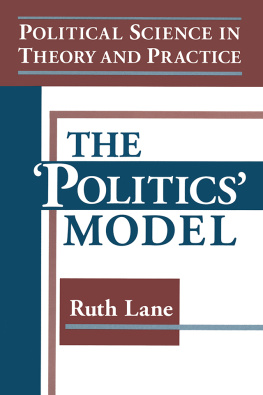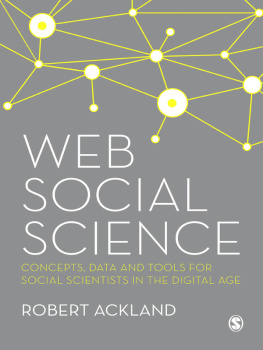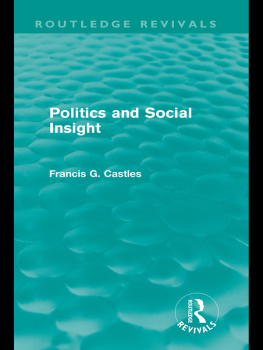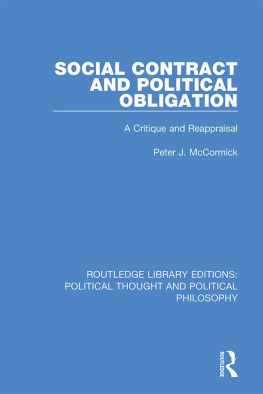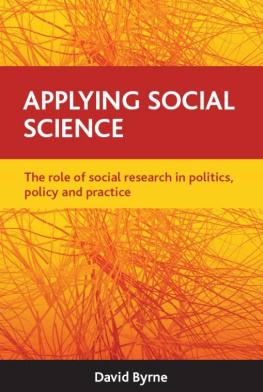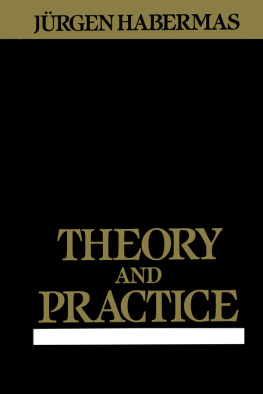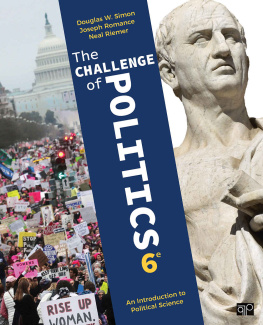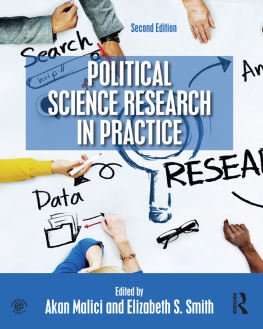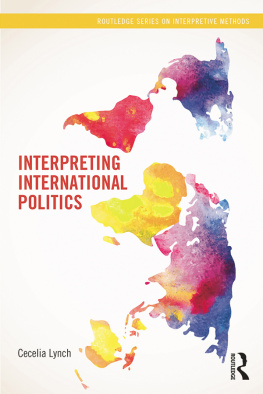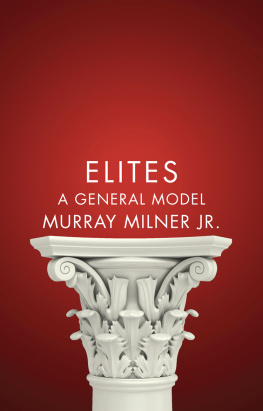A common reaction in the outside world to the admission that one is a political scientist, or is studying to be a political scientist, is the charge that political science is an oxymoronor, more colloquially, the rude question "What's politics got to do with science?" followed by a skeptical roar of laughter. The public feeling seems to be that if political scientists were in possession of anything even faintly resembling a science, they could tell the world something beyond what is in the daily news, could provide not just the known facts but general explanations that would make the political world more understandable. This goal has been elusive. Even when sophisticated statistics are brought to bear on politics, the numbers frequently only repeat facts that were obvious enough to uninformed observers without going to all that statistical trouble. Something more has been needed.
This book argues that political science has over recent decades begun to fulfill its promise of providing in-depth explanations of political events from community politics to political parties to national development to international politics to all the nooks and crannies in which political interaction occurs. A kind of unobtrusive consensus has emerged among leading political scientists who have pursued their independent inquiries, following the natural contours of political life. These political scientists have not sought 'grand' theories, nor made great 'methodological' claims, but have directed their attention to real political problems where opportunities for gain and possibilities for trouble are inextricably mixed in daily political events. In doing what 'came naturally,' these political scientists have in effect created a working of political behavior, a model that explains how individuals and groups, with varying resources and opportunities, engage in the political interactions that create, maintain, or destroy the political institutions, both formal and informal, under which all human beings must live. Using this model allows political scientists and other observers to get a better grip on political realitiesthe dark side and the light side, the conflict and the cooperation, the missed opportunities and the ill-taken roadsthe whole fascinating system that we call politics.
This is not a 'proposed' model but one that has been worked out already by a panoply of well-known political scientists. The only step lacking to the completion of the model is to put a name on it, to call it the 'politics model' and in this way draw attention to the model's effectiveness in studying political events. The book takes this matter in several stages, first arguing that there is a recognizable kind of theory, concrete theory, that studies actual political interactions between real people and develops explanations for what happened and how; then moving to the full 'politics model' as it has been worked out over recent years (and past centuries) on a wide variety of political issues; and finally arguing that such a political model is in exact accord with the newest understanding of the philosophy of science, called scientific realism, which emphasizes just such process-oriented explanations. As part of this inquiry, I explore the various outcroppings of the politics model in comparative and American politics, in public administration, in international affairs; and inquire into the model's relationship with theories of the past, the far classical past as well as the early twentieth-century past.
The charm of the politics model is that it is practical, gives real answers, and enables real political observers to analyze the data that inundate all of us, in a way that has the potential to 'make sense' out of things. Theory has sometimes been touted as suitable only to the most refined intellects, to the most delicate spirits; but the politics model offers itself without pretension as a model willing to be of use to everyone. Those who love the political game as it is currently played will, through the politics model, leam to play the game better. Those who scom everyday politics and seek to build kinder and gentler political systems will equally find the politics model useful, in telling them how to analyze their enemies and to encourage their faithful supporters. Even those who have no political agenda but only their deep curiosity about political affairs will find the politics model useful. It explains things and makes action thereby more effective.
Because the book is written in a tone that is clearly on the side of the politics model, I should probably state my relation to the matter. I grieve to say I did not invent the model, nor do I practice it in any major way. Rather, once upon a time I returned from an extended inquiry into the possibilities offered to political science by psychology, sociology, economics, and the various computer sciences and began to recognize that certain political scientists were doing better science than I had expected. Intrigued, I pursued them through various byways and found that in fact a large number of rather famous political scientists were working with the same inchoate model, lacking any appreciation that others were working in similar modes. I thought this to be a waste of a good idea, and I have tried in this book to explain their methods and their results as part of a unified model.

